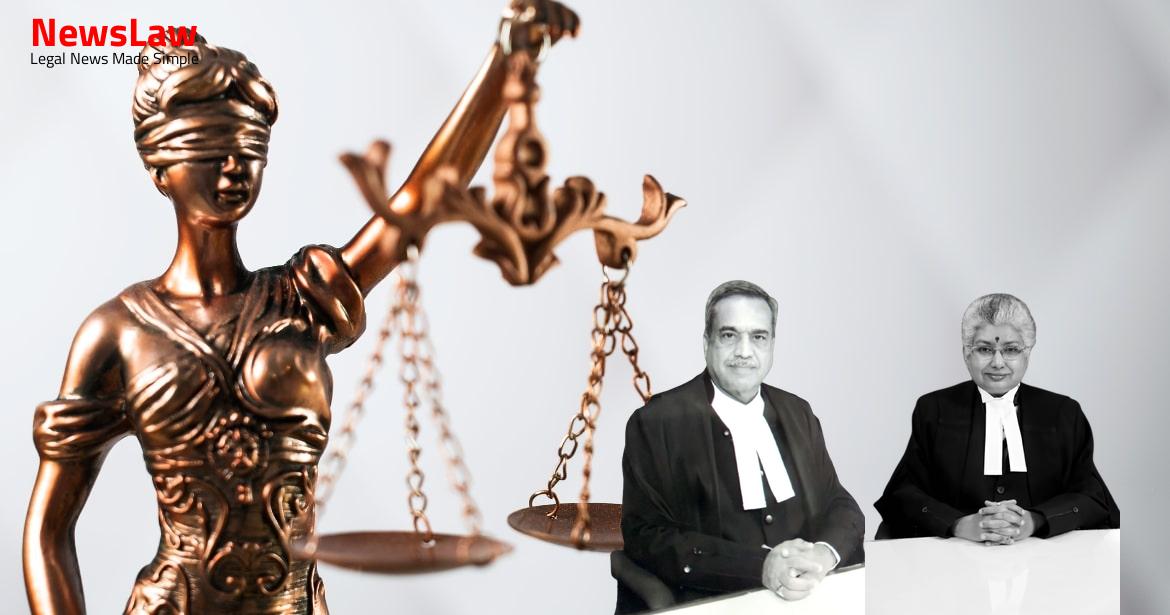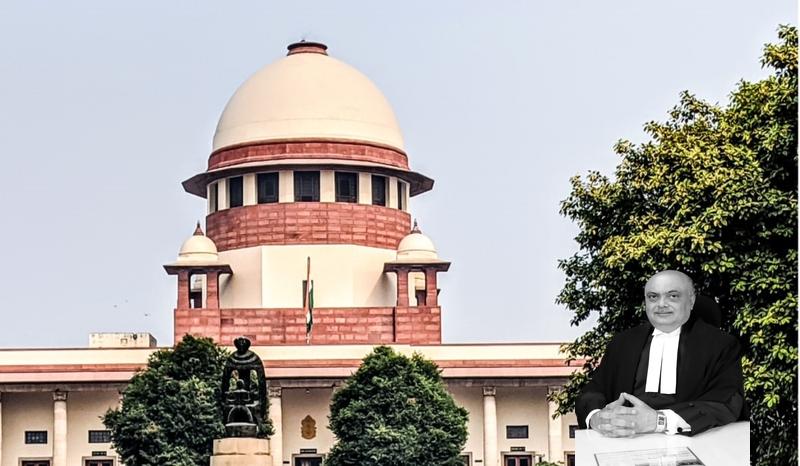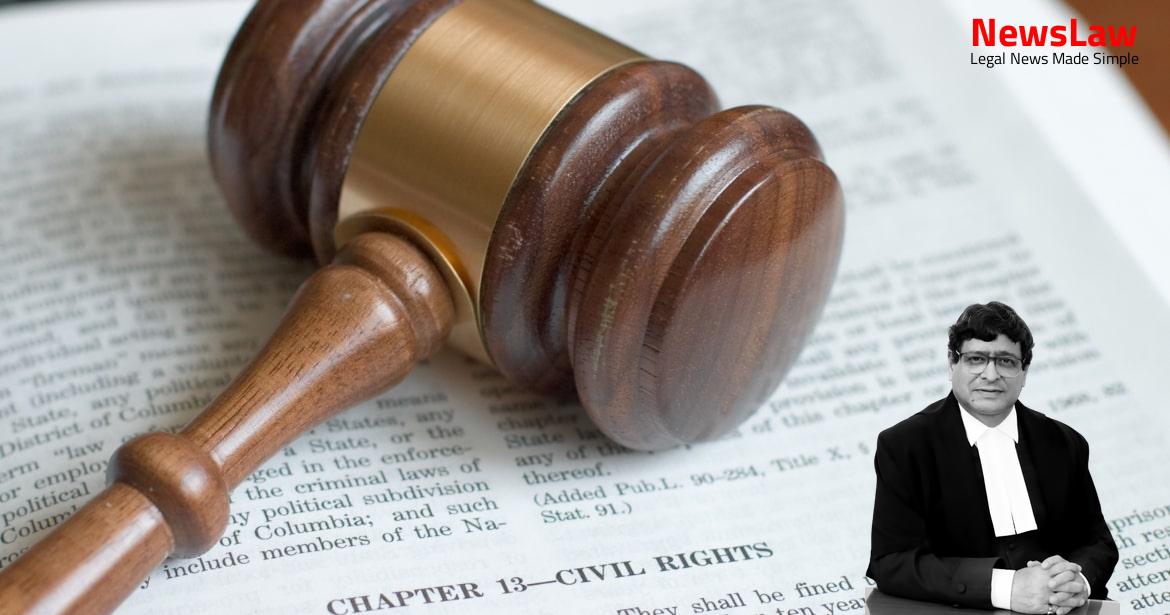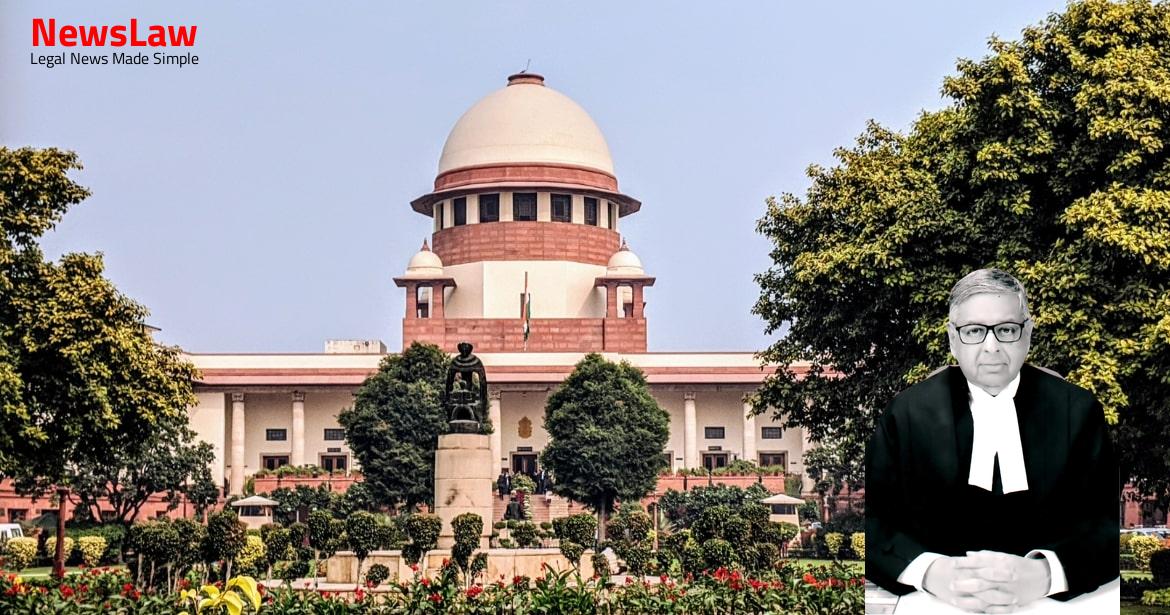In a recent legal case, the court’s examination of a bail decision in a murder case sheds light on the importance of judicial analysis and discretion. The case delves into crucial factors considered by the court while granting bail, emphasizing the need for transparency, accountability, and reasoned decision-making in legal proceedings.
Facts
- Respondent-accused had preferred bail applications under Section 437 of the CrPC on two occasions.
- Deceased had informed appellant and family about rivalry and safety concerns.
- Post-mortem report indicated death by asphyxia due to strangulation.
- Informant stated pre-existing rivalry between accused and deceased.
- Accused arrested on December 10, 2019, in connection with FIR No 407/2019.
- Associates of accused assisted in attacking and killing the deceased.
- Appellant, son of deceased, lodged FIR on December 8, 2019, for murder under IPC Section 302 against the accused.
- Incident occurred at Lalpura Pachar bus stand, where respondent-accused attacked deceased with intent to kill.
- The respondent-accused remained under judicial custody for nearly one year and five months.
- A charge sheet was submitted before the Additional Metropolitan Magistrate in Jaipur.
- The case was committed to the District and Sessions Court for trial.
- The accused’s bail application under Section 439 of the CrPC was rejected by the Additional Sessions Judge.
- The accused then applied for bail before the High Court.
- The High Court granted bail to the respondent-accused in its order dated 7th May, 2020.
Also Read: Analysis of Tax Exemption for Enemy Properties
Arguments
- The appellant argued that the High Court did not consider the gravity of the offence and the manner in which it was committed against a physically impaired person.
- The appellant requested for the appeal to be allowed by setting aside the bail granted to the accused.
- It was emphasized that the bail granted to the accused was against established legal principles and previous judgments.
- The High Court’s bail decision was criticized for lacking proper reasoning and discretion.
- The appellant, feeling aggrieved by the bail decision, filed the appeal before the current Court.
- The deceased, who was the Deputy Sarpanch and had political enmity with the accused’s family, was physically impaired.
- The appellant claimed the accused pinned down the deceased, leading to his death, and that the FIR by the informant was a false implication.
- The appellant denied past enmity between the families and criticized the delay in lodging the FIR.
- The respondent’s defense relied on eyewitness statements suggesting a sudden scuffle between the deceased and accused.
- The incident led to the deceased’s death, with allegations of throttling by the accused and absence of accused’s brothers as per one eyewitness.
- The accused has no criminal antecedents and the incident was a result of a sudden scuffle.
- The offence under section 300 of the IPC has not been made out against the accused prima facie.
- The High Court granted bail to the accused without expressing any opinion on the merits and demerits of the case.
- Elaborate reasons for granting bail are not necessary as long as the record of the case is perused by the court.
- Avoiding elaborate discussion on case merits at the pre-trial stage is essential to avoid prejudicing fair trial.
- The investigation in relation to the FIR is complete, and the charge sheet has been submitted, mitigating concerns of witness influence or evidence tampering.
- The accused, Ram Narayan Jat, is to be released on bail under Section 439 Cr.P.C. by furnishing a personal bond and one surety.
- The accused has deep roots in society and is unlikely to abscond.
Analysis
- Key factors to be considered while granting bail include nature of the charge and evidence
- Primary requisite of an order granting bail is a judicious exercise of discretion
- Significant considerations for granting bail must be mindful of societal concerns
- Reasons in support of decisions must be cogent, clear, and succinct
- Recording of reasons is a valid restraint on arbitrary exercise of power
- Reasons reassure that discretion is exercised on relevant grounds
- Transparency in decision-making is essential to prevent abuse of judicial powers
- Judgments play a vital role in setting precedents for future bail decisions
- Grant of bail implicates the liberty of the accused and societal interests
- Circumstances warranting the grant of bail are crucial alongside the nature of the offence
- Exercise of discretion in bail matters must be judicious and reasoned
- Courts granting bail should not lose sight of the serious nature of accusations against the accused
- Reasons for granting bail are essential for judicial accountability and transparency
- Reasons for bail decisions are part of due process and essential for the development of law
- Rights of victims and their families are also at stake in bail decisions
- The court deciding a bail application must consider aspects such as the allegations against the accused, severity of potential punishment, witness tampering, evidence tampering, frivolity in the prosecution’s case, criminal history of the accused, and prima facie support for the charges.
- Judicial discretion must be exercised judiciously, balancing the alleged crime with the need for a fair trial.
- The cancellation of bail sought in this case is based on the accused’s criminal antecedents and subsequent conduct post bail.
- The High Court’s cancellation of bail was influenced by the doctrine of parity rather than criminal antecedents or other relevant factors.
- The duty to record reasons is crucial to ensure the judicious exercise of discretion by the court.
- The High Court’s decision lacked consideration of important aspects like criminal antecedents of the accused, indicating a failure in exercising discretion.
- Granting bail involves judicial discretion and is not a decision to be taken lightly, considering factors like the nature of accusations, evidence, severity of punishment, witness interference, and potential justice obstruction.
- Disapproval was expressed towards a series of orders that lacked detailed reasoning while referring to party submissions without substantial analysis.
- In criminal cases, reasons for granting or refusing bail must be clearly stated by the court to uphold transparency and fairness.
- A balance between the accused’s liberty and public interest in justice enforcement is necessary while deciding on bail applications.
- The absence of detailed reasoning or relevant reasons in bail orders can lead to judicial scrutiny and potential interference.
- The High Court made an incorrect decision in granting bail to the respondent-accused
- The High Court overlooked crucial aspects of the case and provided a bail order without proper reasoning
- Considering the seriousness of the allegations, the case is not suitable for bail
- The State of Rajasthan did not appeal against the bail order
Also Read: SC Clarifies: Choice of Depreciation Method Allowed Until Return Filing
Decision
- The impugned order dated 7 May, 2020 is set aside.
- The respondent accused is on bail.
- His bail bond stands cancelled and he is directed to surrender before the concerned jail authorities within a period of two weeks from today.
- The appeal is allowed.
Case Title: MANOJ KUMAR KHOKHAR Vs. THE STATE OF RAJASTHAN (2022 INSC 36)
Case Number: Crl.A. No.-000036-000036 / 2022



